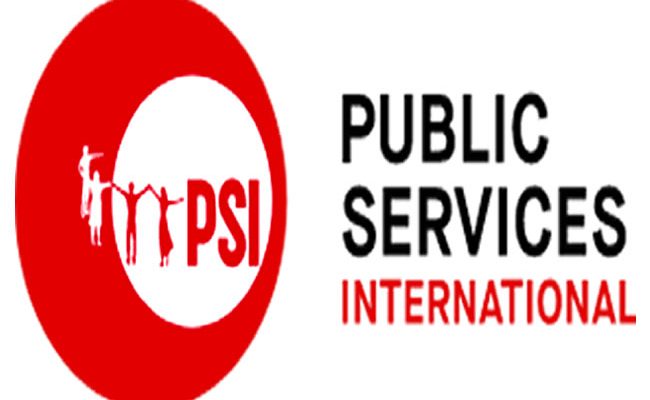
Public Services International (PSI) and its Nigerian affiliates have urged the government to place greater emphasis on quality public services and to enhance protection for public service workers, especially in light of the increasing impacts of climate change.
The unions highlighted how climate change is significantly affecting workers, particularly those in public services, who are often the first responders in emergencies.

They stressed the importance of incorporating climate change impacts into collective bargaining agreements with both the government and employers, ensuring that public service workers’ rights are upheld in the face of growing challenges.
PSI argued that robust public services are vital for climate resilience and that workers in these sectors need adequate protection and support to continue delivering essential services to communities.
The unions also pointed out the crucial role of collective bargaining in safeguarding workers’ rights amid the pressures of climate change, citing issues like heat stress and the need for employers to ensure safe working conditions.
At a workshop held in Abuja, PSI Project Coordinator for English-speaking West Africa, Moradeke Abiodun-Badru, underscored the need to address the effects of climate change on public service workers, particularly women.
Abiodun-Badru mentioned that climate change is already having a noticeable impact, with flooding becoming more frequent as a direct result. She pointed out that public service workers, being on the front lines during such disasters, bear the brunt of these impacts.
The PSI Africa coordinator urged unions to develop climate policies to support workers as they adapt to the changing environment. She emphasised the need for quality public services, especially in areas like water, electricity and healthcare, to build resilience against climate change’s effects.
She also highlighted that since 2020, PSI projects on climate change and public services in Nigeria have trained over 300 members of affiliated unions on the impact of climate change and how it affects both public service delivery and communities across the country.
Abiodun-Badru noted: “The flooding we are experiencing today is not just a natural disaster; it is driven by climate change. These workers are part of the affected communities and also serve on the front lines, providing essential services to those impacted. Special scenarios like these require specific attention and intervention to better position these workers to serve their communities effectively, while also protecting their rights during public emergencies.”
PSI’s Climate Change Project Coordinator, Sandra Van Niekerk, also spoke on the need for collective bargaining to address the various challenges workers face due to climate change. She emphasised that heat stress, among other issues, is making it harder for workers to perform their duties, particularly in critical sectors like healthcare, electricity and local government.
Van Niekerk stated: “Workers across various sectors are struggling to do their jobs as climate change makes conditions more challenging. Whether it is dealing with heat stress or navigating floods to get to work, it is crucial to negotiate with employers to ensure workers are protected. We need to explore solutions like limiting work during extreme heat, providing more breaks, or establishing cooling stations.”
She added that other health and safety issues, such as commuting difficulties during floods, also need to be addressed, as these challenges could severely affect workers’ ability to perform their duties and maintain their jobs.
President of the Judiciary Staff Union of Nigeria (JUSUN), Comrade Marwan Mustapha, also weighed in during the workshop, focusing on how climate change is impacting judicial workers.
He highlighted how insecurity and food shortages, particularly in rural areas, are affecting these workers and called for education and training initiatives to help them adapt to the evolving environment.
Mustapha also pointed out that climate-driven insecurity in some regions has affected JUSUN members, with some even being kidnapped by bandits, further complicating their ability to carry out their duties.
READ ALSO: Abandoned newborn found in Kano







